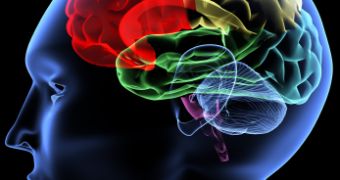Specialists in neurology long knew that severe depressions and long-term stress can eventually translate into a 'shrinking' of the brain, meaning that the patients experienced a loss in terms of number and efficiency of their synaptic connections.
As was to be expected, this in turn led to altered emotional and cognitive abilities.
Researchers working with the Yale University now argue to have come across the genetic mechanism though which said biological changes occur in the brain of those suffering either from major depression, or from chronic stress.
Thus, as explained in their official account of this research, published in the journal Nature Medicine, the blame need be put on a genetic switch (a transcription factor, to be more precise), which keeps the genes responsible for the formation of new synapses from doing their job.
The team reached this conclusion after carefully analyzing samples of brain tissue coming from depressed and non-depressed patients, all of which provided by a brain bank.
Apparently, their investigation showed that the brain samples collected from depressed patients displayed a significant reduction in terms of expression in genes that are known to foster the development and wellbeing of brain synapses.
Yale's online Newsroom quotes specialist Ronald Duman, who specializes in neurobiology and in pharmacology, and who made a case of how, “We wanted to test the idea that stress causes a loss of brain synapses in humans. We show that circuits normally involved in emotion, as well as cognition, are disrupted when this single transcription factor is activated.”
Researcher Ronald Duman also explains how these findings can prove to be of utmost importance when it comes to treating people suffering from the aforementioned conditions.
“We hope that by enhancing synaptic connections, either with novel medications or behavioral therapy, we can develop more effective antidepressant therapies,” he explained in one of his most recent interviews.
Funding for this research was provided by National Institutes of Health and the Connecticut Department of Mental Health and Addiction Services.

 14 DAY TRIAL //
14 DAY TRIAL //